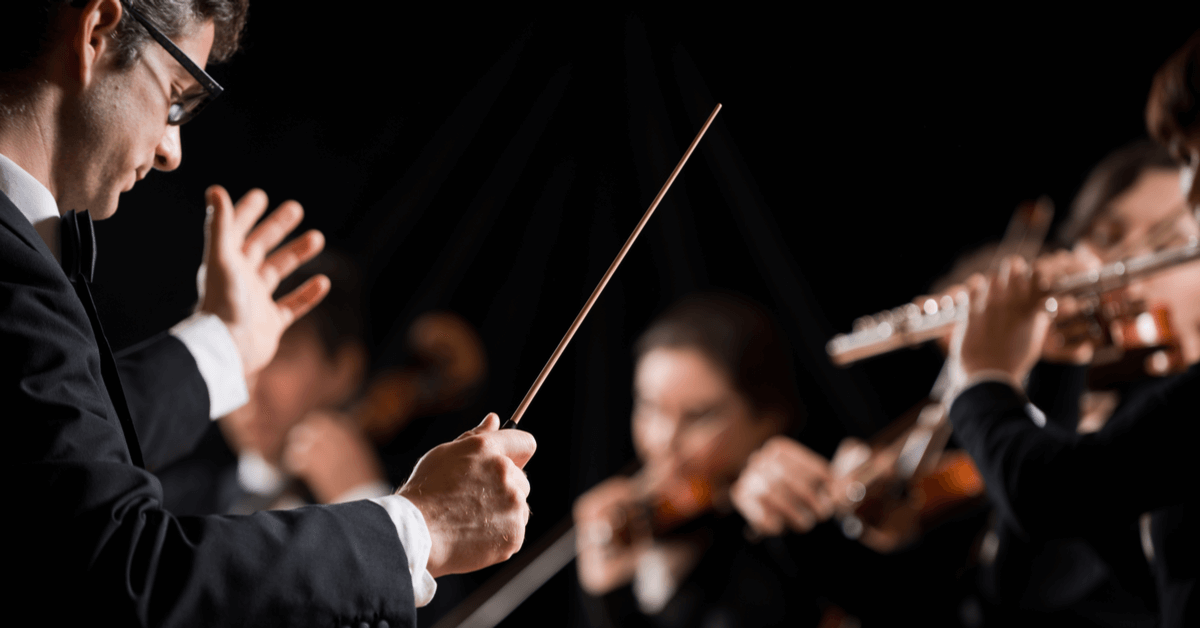This article won 2nd prize in the Intrepid Ed News Summer Writing Contest. The writing prompt was: “I think my profession needs…” Congratulations to Benjamin Freud!
I think my profession needs to move away from the role of singer-songwriter and more toward orchestra conductor. Singer-songwriters control every aspect of the performance, from the creative process that takes place in composing pieces to the setlist, which instruments to bring onstage, the rhythm, lyrics, and even the chatter with the audience in between songs. What they don’t control is how the audience will react. Orchestra conductors don’t play instruments (at least not while they’re conducting); they point to different instrument sections, individual artists, and manage the overall emotional feel of the piece played through pace, intensity, and timing. Instruments come together at the right time to create a musical experience.
Now the picture I am painting is not the one where the teacher is the conductor and each student is a unique instrument that will blossom in its own way. That’s great too, don’t get me wrong, but it’s not what I mean.
In my analogy, the teacher is the conductor, each instrument is a member of the community, each instrument…



